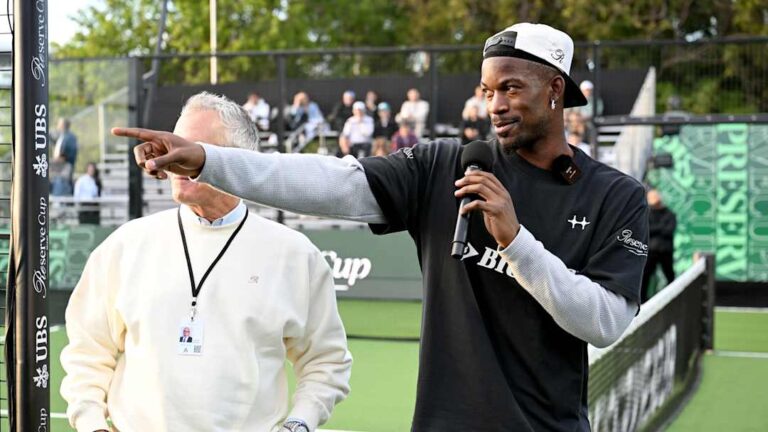The Phoenix Suns aren’t yet true contenders in the Western Conference, but they’ve made significant progress in resolving some of their biggest issues. Bradley Beal is now coming off the bench and, at least publicly, seems to have accepted this role on the team.
Meanwhile, center Jusuf Nurkic has been benched entirely, and new addition Nick Richards has brought noticeable energy and hustle. Even Mason Plumlee has stepped up lately, transforming what was once a glaring weakness in the Suns’ center rotation into a far less pressing concern.
Yet, despite these improvements, the Suns remain linked to Jimmy Butler.
Butler, still with the Miami Heat, is rumored to be available, with some NBA insiders suggesting that the Suns could acquire him through a three-team deal involving Beal being sent to the Chicago Bulls. While this might sound appealing on paper—and there may even be reasons Beal himself would entertain the idea—Beal’s no-trade clause gives him full control over the situation.
However, recent news from Miami about Butler should be enough for the Suns to walk away from any interest in the 35-year-old. Butler has been indefinitely suspended by the Heat, signaling that a move before the trade deadline is likely.
Considering how cohesive and happy the Suns currently look on the court—despite earlier struggles—adding Butler now doesn’t seem like a wise move. Earlier in the season, when Beal was starting and Nurkic was playing, there was a real danger of missing the playoffs entirely. Back then, trading for Butler might have been easier to justify.
But the Suns have now won eight of their last ten games. Even though the schedule has been favorable, the team’s pecking order is becoming clearer. Head coach Mike Budenholzer recently played just eight players in a win over the Clippers, hinting at his playoff rotation (excluding Ryan Dunn, who’s sidelined with an ankle injury).
That group performed well, showing potential on both ends of the court when their 3-point shooting is clicking. Bringing Butler into this mix—likely at the expense of Beal—raises serious questions. Butler would likely start, forcing the Suns to lose Beal, their best offensive weapon off the bench.
Additionally, Tyus Jones, who has had his own struggles, would likely be relegated to the second unit. Jones is most effective when setting up stars like Devin Booker and Kevin Durant, so such a shift could disrupt the team’s balance. On top of that, the Suns would likely have to offer Butler a max contract this summer to keep him, a move that doesn’t seem wise for the long-term.
At this point, the Suns are slowly rehabilitating Beal’s trade value, while Nurkic appears to be a lost cause entirely. While they might need to attach a first-round pick to move Nurkic, the team would still retain more flexibility and future draft assets than if they traded for Butler.
Though Butler could provide short-term improvements, he isn’t likely the championship piece the Suns need. His exits from the Timberwolves, 76ers, and now his situation in Miami suggest a troubling pattern. Why would things end any differently in Phoenix? Adding Butler, who is nearing 40, would leave the Suns with no trade value and little hope for the future.
In short, the Suns would be wise to avoid making this move.
